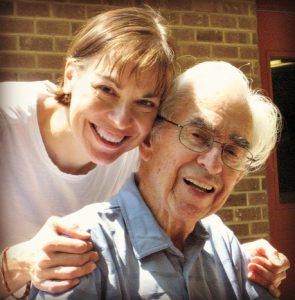One of the greatest challenges, when it comes to Alzheimer’s disease and other dementias, is coping with sundowning and with difficult behaviors.
These are symptoms beyond the chronic memory/thinking problems that are the hallmark of dementia. They include problems like:
- Delusions, false accusations, paranoid behaviors, or irrational beliefs
- Agitation (getting “amped up” or “revved up”) and/or aggressive behavior
- Restless pacing or wandering
- Disinhibited behaviors, which means saying or doing socially inappropriate things
- Sleep disturbances
These are technically called “neuropsychiatric” symptoms, but regular people might refer to them as “acting crazy” symptoms. Or even “crazy-making” symptoms, as they do tend to drive family caregivers a bit nuts.
And when these behaviors happen in the late afternoon or early evening, it’s usually called “sundowning“. (In most cases, sundowning is triggered by fatigue; anticholinergic medications may cause sundowning symptoms as well.)
Because these behaviors are difficult and stressful for caregivers — and often for the person with dementia — people often ask if any medications can help.
The short answer is “Maybe.”









